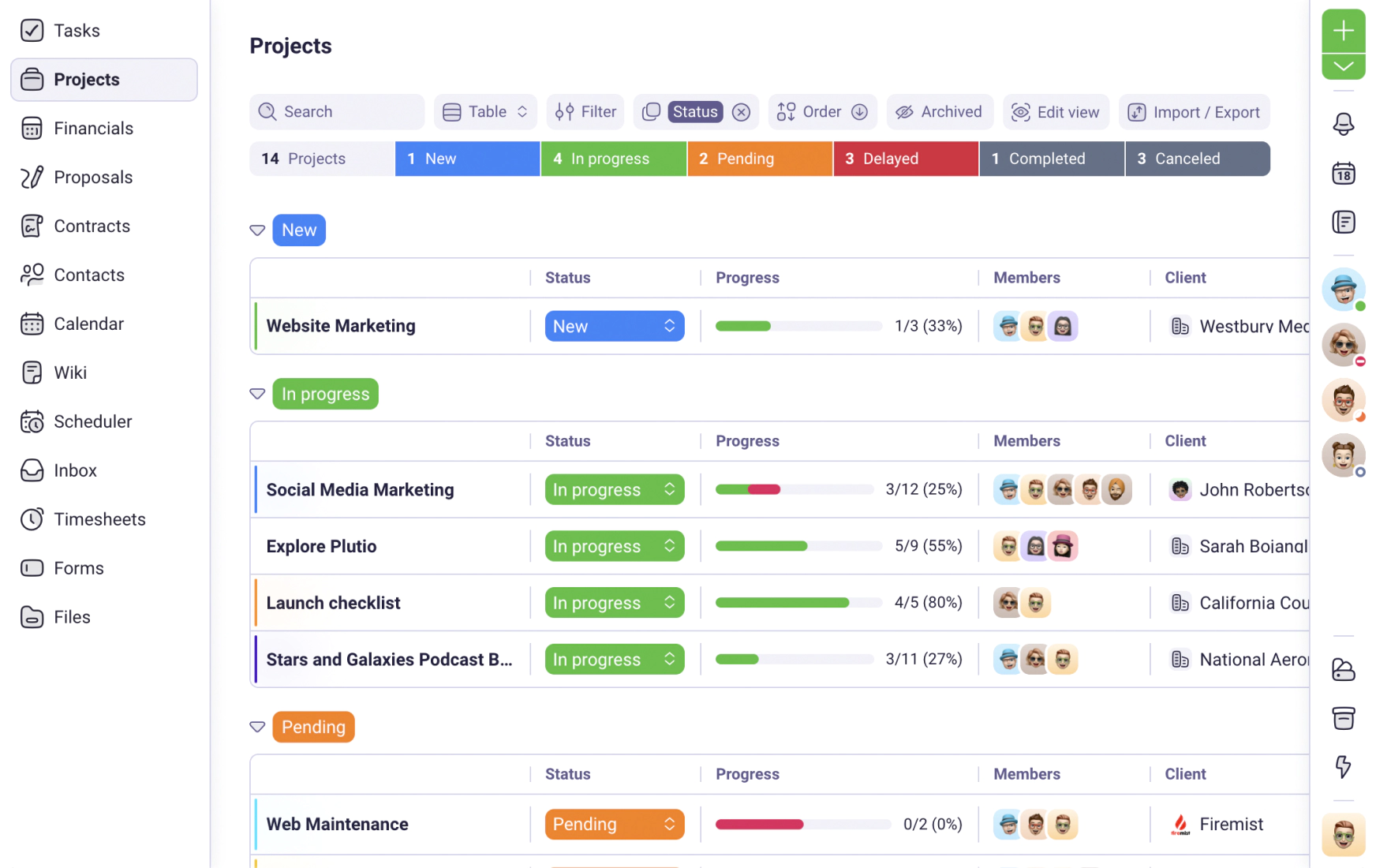We use cookies to personalise and enhance your experience.
Being a freelancer brings with it massive flexibility and control over your own time and energy. You get to choose who you want to work with and what you want to work on. And there’s no dearth of projects out there, ranging from quick jobs to larger and longer projects.
While the quick jobs are an easy way to earn a quick buck, it’s the larger projects that bring more interesting problems to be solved, and the potential to get diverse experience and make more money along the way.

Now bigger projects can definitely be exciting but they are not without their risks and need to be managed very well.
Let’s look into what you need to do to take on more (and bigger) freelancing projects and avoid some of the most common pitfalls along the way.
Collaborate With Other Freelancers
There’s only so much you can do working as a solo go-getter. To really go for those bigger projects and multiply your gains, you need to collaborate with other freelancers. And not just any freelancers but the right ones!
While one of the benefits of collaborating is to expand your creative and entrepreneurial horizons, there is always something new to learn, and that learning gets expedited when you are working with another freelancer.
Partnering with the right person or team can not only enrich your overall project delivery but can even improve your customer loyalty.
You can find people to partner with either through your network or find them at freelancer meetups, co-working spaces, or even online social network groups.
Now before approaching another freelancer for collaborating on a bigger project, learn more about them. Try to find out the previous projects they’ve worked on or check out their online portfolio. This will give you a good idea of their capabilities and any complementary skills they have that’ll be useful to you.
Once you’ve found yourself a teammate, remember to draw up a scope of work detailing the project, get buy-in on the remuneration for you and them, and divide responsibilities to avoid any potential surprises later on.
Get Your House In Order
While you might be used to managing your time while working solo on projects, it is a different ball game when working with a team. This is where managing your teams’ time efficiently becomes vital and if done well can result in more time for you to take on extra projects.
Team projects such as mobile app development are well suited for collaboration tools. Courtesy of the active freelancer and startup culture, there are a plethora of companies that are providing tools to make the lives of freelancers easier - even if you are just starting out on your mobile app development journey.
Tools such as Plutio are all-in-one apps that can help you manage all your business tasks. Slack is great for instantaneous team messaging. Trello, Pandle, and Basecamp are more such tools you should definitely check out. Organization and collaboration tools encourage communication and simplify processes, which is especially useful when you are working with someone new.
Projects that have a long roadmap or require you to work in tandem with a pre-planned product strategy simply cannot be done without a well-set project management framework.
There are several ways to build a product roadmap - identify the one that works best for your project. If you work with multiple partners, pick those who are already aware of the specific roadmap that you have picked. This makes collaboration more efficient.
This is even more important in the case of software development projects that can be iterative and require a test plan to ensure the quality of each feature release.
Define Your Niche and Stick To It
Let’s say a client wants to optimize their search performance and ranking. Would they hire an SEO specialist or a Jack of all trades who can do everything? The answer is quite simple – a specialist every time. Finding your niche and allowing yourself to grow within it is as important as finding new clients!
While it is obviously useful to know skills that are complementary to the one you are specializing in, have a sharp focus on your specialization. The complementary skills that you learn will help you broaden your client base but your specialization will help you become a client favorite!
Specialization also helps with estimating projects better. When you take up projects in newer domains, you are not in a position to estimate their timelines well. This contributes to unexpected delays and overruns that brings down client experience. Specialization helps you become an expert in your domain, and that also means better projections and a tighter control over your processes.
A lot of clients are on the lookout for specific experts to help them through social searches on Twitter and Facebook. So branding yourself and your specialization on these platforms is important.
Once you know what you want to do you need to be clear on what you won’t do as well. The clearer you are about what you want to do the more clients will have a clear understanding of the projects they can come to you with and give you the opportunity to continue building your portfolio in the direction you want it to go in.
For example, if you feel Ruby on Rails is what you want to learn more about, are interested in and you can find good projects in that domain, then you should not spend too much time considering offers for let’s say...designing a microsite.
While denying projects (and potential income) can be a horrifying proposition, you are playing the long-game by focusing on your niche and building a personal brand around it.
Who’s Your Ideal Client?
Having a clear idea of the environment you perform well pays dividends. You can choose to work with a small business owner building a website, work with high growth startups pitching new app UX features, or with enterprise clients on long-term projects.
To understand who your ideal clients are, ask yourself these questions –
- Which business has the problems I’m offering to solve with my skills?
- Can my business I want to work with afford my services?
- What are the demographic trends of decision-makers in the businesses I’m targeting? (age, location, frequently visited websites)
Knowing who you enjoy working with can make your projects more enjoyable and your professional relationships more meaningful. And when potential clients have a clear understanding of your preferences and skillset they can instantly relate with you and have faith in your ability to solve their problems.
Develop a Growth Mindset
Getting away from the corporate rat race is one of the many reasons people turn to freelancing. Having the opportunity to invest in your own growth on your terms can be tempting, to say the least.
A lot of people though do not realize that freelancing is a different ball game altogether. Outside of the structure of corporate culture, freelancing requires you to be self-motivated at all times to perform well. And if you do not have a growth mindset you can very quickly find yourself in a rut.
The best way to develop a growth mindset is to invest in yourself by upskilling. Attend virtual workshops, networking events, and enroll yourself in courses that help you specialize in your niche.

You also need to hustle. A lot. Bidding for a new app development project? Throw up a quick MVP with an app builder along with your bid - this is a lot more work than simply placing a bid. But the conversion rate is way higher and makes up for the spent resources.
Besides this, consume content around communication skills and self-improvement to improve your character and become a better leader.
Reading books and blogs related to specific skills helps as well. So does taking up projects that push you beyond your comfort zone.
The core purpose is to create a self-sustaining engine of motivation that is supported by a habit of upskilling and experimenting. Cracking this will help you ace those proposal discussions and rapidly get new clients.
Over to you
Becoming a freelance powerhouse is a tall order but is certainly achievable with the plan of action! What do you think are the best tips for taking on freelancing projects?
Have you tried Plutio yet?
The only app you need to run your business and get work done.
Try Plutio for FREESupercharge your business
The complete toolkit to run your business
The intuitive all-in-one solution to manage and collaborate on projects, share files, build forms, create proposals, get paid, and automate your workflow.
No credit card required


